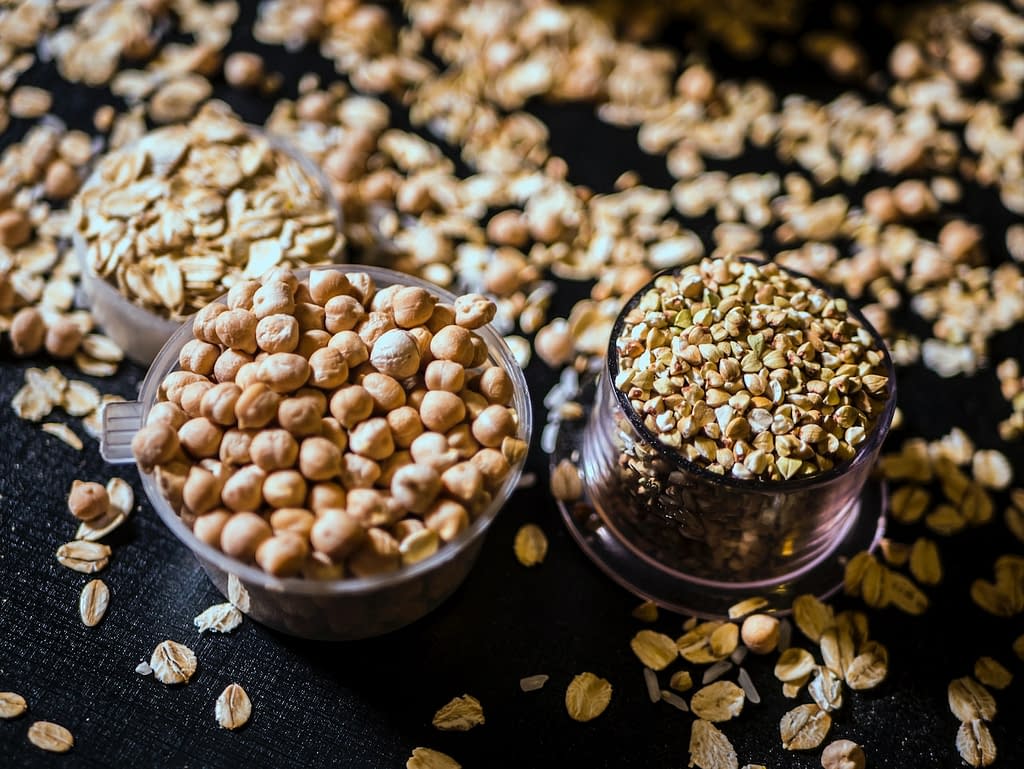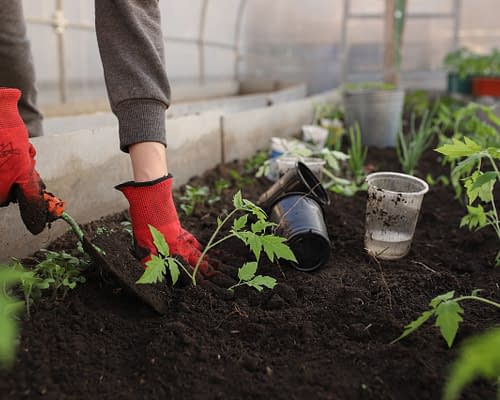15 vegetarian meals high in protein

By The Headlines, October 10, 2023 | 07:53 PM
Why protein from plants?
More plant-based meals and an organized vegetarian diet can provide all the vital nutrients you require for your age, gender, and level of exercise, among many other advantages. A diversified, whole-food vegetarian diet has more folate, fiber, and vitamins C and E while having less saturated fat. The majority of vegetarians consume their prescribed five servings of fruit and vegetables each day, and many even consume more. Additionally, plant-based diets consume less natural resources and are therefore linked to less environmental harm.
What protein-rich plant-based foods are present?
One nutrient that people beginning a plant-based diet frequently worry about is protein. There are several useful plant sources, though.
You may have heard that some plant proteins are 'incomplete' because they lack one or more of the key amino acids required for our growth and repair. You can make sure you get all the amino acids you need by eating a diversified diet that includes various types of plant protein. It's also reassuring to know that there is no proof that those who consume a varied plant-based diet are at risk of lacking this essential macronutrient. You may confidently choose from our list because we've evaluated the protein content of a variety of plant foods for both their relative protein content and the quantity they contribute in a normal meal.
1. Lentil
Lentils go well in dishes like vegan lasagne or vegan sweet potato cottage pie. They are inexpensive, quick to make, and easy to store. Lentils are one of the legumes with the highest protein content by weight, with up to a third of their calories coming from protein. The quantity of protein in pulses like lentils is almost twice that of whole grains like oats, wheat, barley, and rice. When you combine the two, you get the ideal composition because each one balances out the other's contribution of crucial amino acids. You may receive roughly 9g of protein, along with fiber, folate, and potassium, by adding only 3 heaping tablespoons of cooked lentils to your meal.
2. Edamame beans (soya bean)
Edamame is one of the greatest plant-based protein sources available; an 80g cooked meal of these adaptable beans contains 8.7g of protein. Beans are among the best plant-based protein sources available. Try our delectable edamame falafel wraps, which combine the advantages of both edamame and chickpeas.
3. Tofu
A 100g serving of tofu, which is made from cultured soy milk, has roughly 8.1g of protein. This soy product, which comes in a variety of forms including silky, firm, and marinated, is highly adaptable; use it to make tofu breakfast pancakes or a Japanese-inspired salad.
4. Peanuts
Along with soybeans, lentils, and garden peas, peanuts are classified as a legume, not a nut. Peanuts, also referred to as groundnuts, grow in pods that are produced on the ground rather than on trees. About 8g of protein can be found in two tablespoons of peanut butter or a small handful of peanuts. Make your own homemade peanut butter to put in cereal or smoothies for a protein boost, or add peanuts to vegan curries.
5. Pumpkin Seeds
An amazing 7.3g of protein and valuable amounts of zinc and iron are present in a 30g meal of pumpkin seeds. These delightful little seeds are a practical snack. Don't throw away the seeds when cooking with pumpkin; instead, enjoy them roasted or add them to a salad, like our superfood salad with citrus dressing.
6. Chickpeas
Chickpeas are satisfying and healthful thanks to their balanced protein and fiber content. Try them in a curry like our chole with cumin rice raita or a savory dish like our chickpea, spinach, and nut butter bowl instead of just hummus. These mouthwatering dishes blend chickpeas with grains or nuts to provide all the essential amino acids. Cooked chickpeas have 6g of protein per 80g serving.
7. Almonds
Minerals that are good for the bones, such calcium and magnesium, are abundant in almonds. In our almond crêpes with avocado and nectarines for breakfast, or as a pleasant complement to our linguine with watercress and almond pesto, they go well because of their naturally sweet flavor. 6g of protein are present in a 30g meal, or around a tiny cupped handful.
8. Sunflower Seeds
Just a tiny handful (30g) of sunflower seeds offers a handy 5.9g of protein and makes a great addition to granola, seed mixes, or salads like our broccoli pasta salad with eggs & sunflower seeds. Sunflower seeds, which are high in selenium, may also enhance thyroid and immune system functions.
9. Kidney Beans
When you include kidney beans on your menu, you'll gain from more than just their protein contribution because they are full of heart-healthy elements like potassium, folate, and fiber. With 5.5g of protein in an 80g serving of cooked kidney beans, they are a useful addition to vegan chilli as well as pasta puttanesca.
10. Garden Peas
Peas are actually tiny, edible legumes that are not a vegetable and are related to lentils, chickpeas, beans, and peanuts. They are a valuable vegan source of iron and B vitamins, which are crucial for both developing youngsters and women of reproductive age.
80 grams of boiling peas have 5.4 grams of protein; try our delightful leek, pea, and watercress soup or asparagus and lemon spaghetti with peas.
11. Pistachio
These tasty nuts, a common addition to desserts and puddings, give food a fascinating color because of the vibrant colors that they contain. Pistachios are the richest in potassium and have the lowest fat and calorie counts of the majority of nuts. Pistachios deliver an amazing 5.4g protein in only a 30g dose. Don't just use them in desserts, but use them in side dishes like our pistachio-pistachio-pomegranate-sizzled sprouts or our herb salad.
12. Cashew
30g of cashews, or about a cupped handful, will add 5.3g of protein. When combined with our curried cashew dip, cashews are a tasty snack and a good source of iron and zinc. They also give our roasted cauliflower with a tomato and cashew sauce a nuttiness.
13. Black Beans
In addition to being a strong source of protein (an 80g portion has 4.8g), black beans are also a rich source of fiber, folate, potassium, and other heart-healthy minerals. A burrito bowl with chipotle black beans or black bean potato nachos are both delicious options.
14. Quinoa
Quinoa is actually a seed, even though it is frequently consumed as a grain. It provides all nine necessary amino acids, making it a complete source of protein in contrast to grains. Quinoa is free of gluten and highly adaptable; you can have it for breakfast, lunch, or dinner. Try our mouthwatering quinoa stew with squash, prunes, and pomegranate seeds, kale and quinoa patties, or delectable cardamom, peach, and quinoa porridge. 4.4g of protein is contained in 100g of cooked quinoa.
15. Oats
Oats are a great source of dietary fiber and slow-releasing carbohydrates. A 40g dish of oats contains 4.4g of protein. Use them in our vegan "meatballs" or dairy-free banana oat pancakes.










